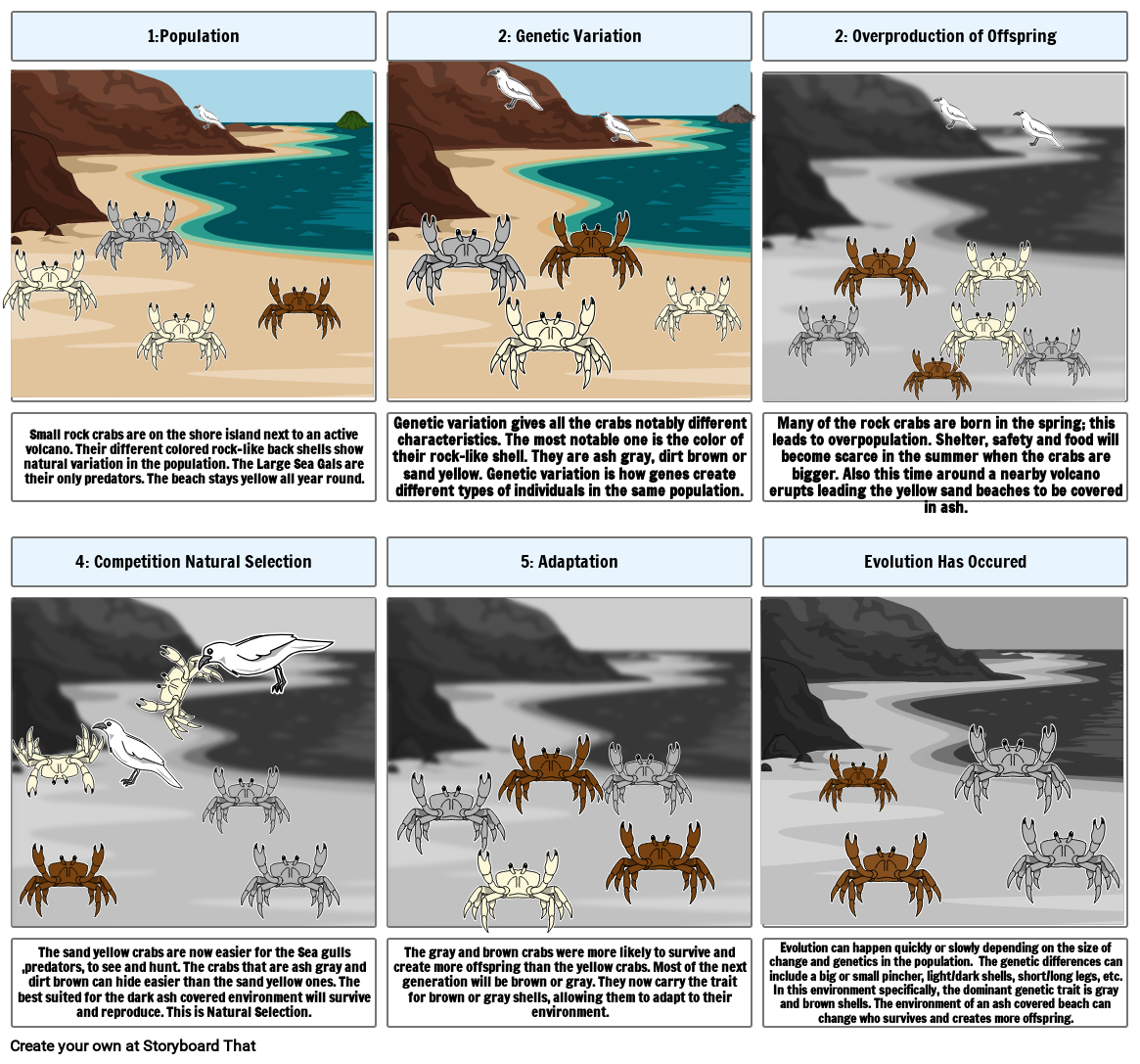Untitled Storyboard

Texto del Guión Gráfico
- Deslizar: 1
- 1:Population
- Small rock crabs are on the shore island next to an active volcano. Their different colored rock-like back shells show natural variation in the population. The Large Sea Gals are their only predators. The beach stays yellow all year round.
- Deslizar: 2
- 2: Genetic Variation
- Genetic variation gives all the crabs notably different characteristics. The most notable one is the color of their rock-like shell. They are ash gray, dirt brown or sand yellow. Genetic variation is how genes create different types of individuals in the same population.
- Deslizar: 3
- 2: Overproduction of Offspring
- Many of the rock crabs are born in the spring; this leads to overpopulation. Shelter, safety and food will become scarce in the summer when the crabs are bigger. Also this time around a nearby volcano erupts leading the yellow sand beaches to be covered in ash.
- Deslizar: 4
- 4: Competition Natural Selection
- The sand yellow crabs are now easier for the Sea gulls ,predators, to see and hunt. The crabs that are ash gray and dirt brown can hide easier than the sand yellow ones. The best suited for the dark ash covered environment will survive and reproduce. This is Natural Selection.
- Deslizar: 5
- 5: Adaptation
- The gray and brown crabs were more likely to survive and create more offspring than the yellow crabs. Most of the next generation will be brown or gray. They now carry the trait for brown or gray shells, allowing them to adapt to their environment.
- Deslizar: 6
- Evolution Has Occured
- Evolution can happen quickly or slowly depending on the size of change and genetics in the population. The genetic differences can include a big or small pincher, light/dark shells, short/long legs, etc. In this environment specifically, the dominant genetic trait is gray and brown shells. The environment of an ash covered beach can change who survives and creates more offspring.
Más de 30 millones de guiones gráficos creados

